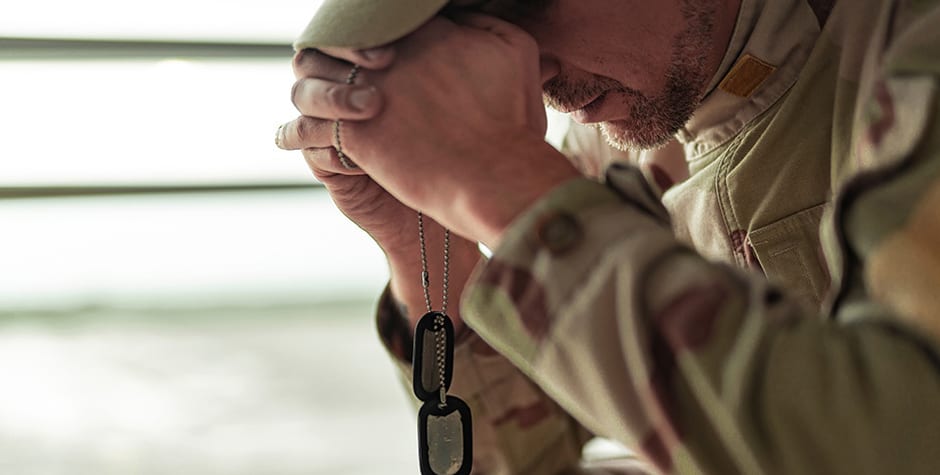Faith Is Foundational to Memorial Day
“We sleep soundly in our beds because rough men stand ready in the night to visit violence on those who would do us harm.” – Winston Churchill
Memorial Day is a federal holiday in the United States to remember all those who have died in military service to the nation. The holiday originated in the South immediately after the end of the American Civil War. Southern women in Georgia and Mississippi, grieving for the loss of a huge portion of the male population, organized “Decoration Days” on which flowers were placed on the graves of dead soldiers. The custom quickly became popular and widely publicized. In 1868, the Grand Army of the Republic, an organization of Union veterans, established a day for the nation to decorate the graves of the Union war dead with flowers as well.
It quickly became customary for the graves of both Union and Confederate soldiers to be decorated and their service honored, no matter where they fell or for which side they fought. Northern women would include the graves of Confederate soldiers in the commemoration and Southern women would also decorate the graves of Union soldiers. Grief over loss became part of what brought our broken nation back together.
By the early part of the 20th century, it became a day to honor not just those who died in the Civil War, but for all military dead, with May 30th as the accepted date. It was chosen because it was not the anniversary date of any particular battle and because flowers would be in bloom across the nation. On June 28, 1968, Congress passed the Uniform Monday Holiday Act, which moved four holidays, including Memorial Day, from their traditional dates to a specified Monday to create a convenient three-day weekend. The change moved Memorial Day from its traditional May 30th date to the last Monday in May.
The undertones of religion are obvious in the commemoration of Memorial Day—both in the past and in the present day. The ceremonies, speeches, traditions—even most of the headstones in our military cemeteries—are reminders that faith is foundational to how we remember our dead and to America itself. For example, in U.S. military cemeteries in Europe, there are an estimated 10,000 crosses marking the graves of Americans. Every military headstone today includes the option to put a symbol of the deceased veteran’s religion at the top of the marker. Memorial Day and Thanksgiving Day tend to be both secular and religious holidays. Honoring the sacrifice of others and gratitude are not just societal virtues, they are basic religious virtues.
Of course in keeping with the First Amendment, being religious at some level, possessing spiritual values and beliefs, does not mean that we discriminate against those who have no profession of faith or that Memorial Day is only for the religious. However, most Americans claim to have some level of belief in spirituality and in a higher power. Whether or not one attends church, synagogue, or a mosque, for example, has little bearing on the deep—often unarticulated—sense of most people that there is more to life than just this life. Most world religions believe in some form of life after this life. That spiritual dimension unites a wide range of religions—and people—in how we honor the dead and how we view Memorial Day.
Faith has a place in the commemoration of Memorial Day. It always has. The ways the U.S. underscored religion in our national ceremonies began with the Thanksgiving proclamation by George Washington, continued as America reacted to atheistic Communism in the Cold War, and is illustrated by prayers that open each session of Congress and the service of uniformed chaplains in our military service. During the height of the Cold War and in the Vietnam era, the postmark on envelopes processed by the U.S. Post Office read, “Pray for Peace.”
In a resolution approved by the House and Senate in 1950, Congress asked the President to issue a proclamation calling on the people of the United States to observe every Memorial Day as “a day of prayer for permanent peace.” Every President since has issued an annual proclamation just before Memorial Day in May. The proclamation is traditionally titled “Prayer for Peace, Memorial Day.”
After 26 years of military service which included three years in Casualty Affairs at Dover Air Force Base, I gained an even deeper appreciation for what this day means. I served alongside dedicated men and women who were willing, if necessary, to give their lives in sacrificial service to our country. I witnessed firsthand those who died serving something larger than themselves—including the ideals and values that make America the country we love and for which they gave their lives. My own military service, along with honoring the dead at Dover and meeting their Gold Star Families, was a constant reminder of the extraordinary commitment embodied in the people who serve in our Armed Forces.
Most Americans will never serve in the military; less than one percent join. And even with those who do, very few of us must give the last full measure of devotion to America. Whether or not one serves in the military, on this holiday, we all have a sacred duty to the country: to give thanks for those who died and to live a life that reflects the principles and the abiding faith in God’s providence that our ancestors embraced at the founding of our nation. The Judeo-Christian tradition, combined with the contributions of other religions in America, informs who we are as a nation. Faith is indeed foundational to Memorial Day and to the United States of America.
Gracious God, let perpetual light shine on those members of the military who died. May they Rest in Peace. May we live our lives, and honor our nation, in ways that honor them and respect the sacrifice they made.
